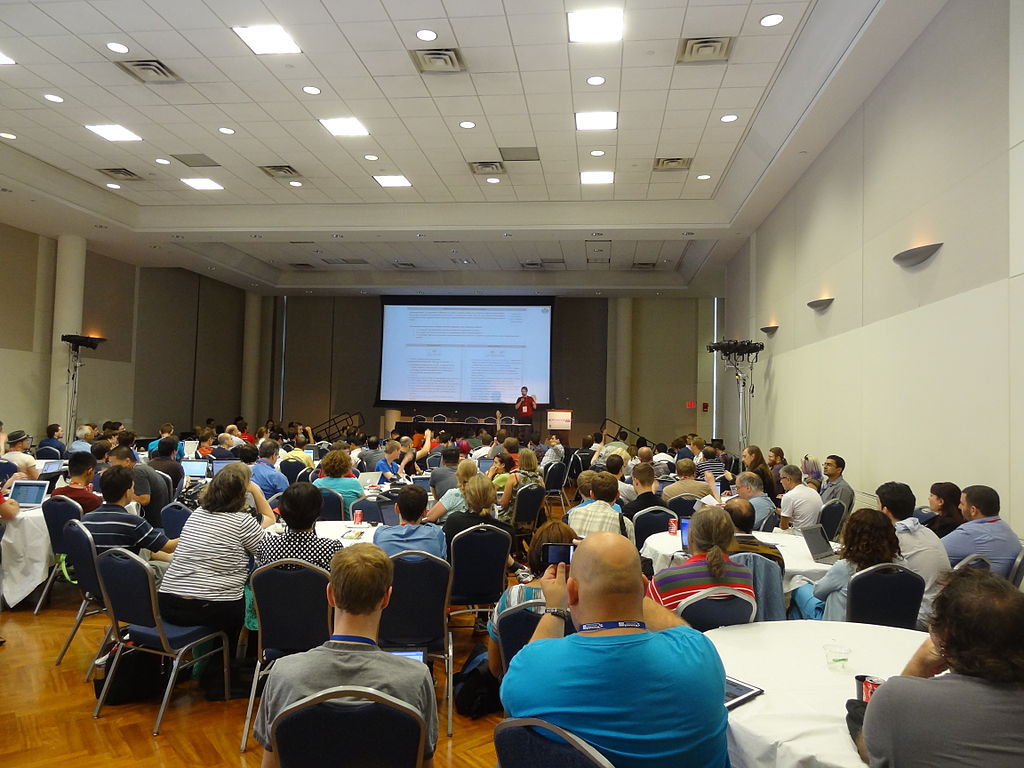Teach others what you learn
As developers, we have to retain a lot of knowledge. A new concept presents itself almost daily if we are active in our learning. You have probably learned several things that could help you to become a better developer and then simply forgot them within a week or two. The best way I know to solidify those concepts and prevent them from escaping is to tell someone else about them.
Teaching has several effects. The first being that while preparing to teach you must understand a concept well enough to explain it to someone else. Secondly, you will get feedback on your understanding of the concept. If you don’t understand it well enough, whoever you are trying to teach it to will let you know, subtly or not. Most importantly, learning and then explaining will cause you to remember better than learning alone. Lastly, it will make you famous! Okay, it won’t make you famous, but it will help to make others aware of you. When striving to be a 6 Figure Developer, having more people know you exist is a great thing.
Where to start
I find that teaching your coworkers can be very rewarding. You’re in a “safe” place to screw up, surrounded by peers. Teaching at work is probably the best place to start. While you could grow organically and start by just answering questions when coworkers ask them. It would be quicker and more beneficial if you offered to do a lunch and learn.
A “Lunch & Learn” (L&L) is a formal meeting during lunch where you, the presenter, speak on a topic that would be beneficial to your coworkers and likely the company. The best part about L&L’s is they are short. You could talk to 5 minutes on a subject and that counts. Short talks are often called lightning talks and are much easier to prepare for and deliver. When just starting out I would suggest doing a lightning talk that lasts between 5 and 15 minutes. After your speech, ask your coworkers for any helpful criticism that they might have. Keep an open mind, as they may bring up a problem that you didn’t know existed. They are trying to be helpful and you can either take the criticism to become a better speaker or you can get upset and unproductive. It’s up to you.
You’ve just delivered your first presentation at work, now what?
The next step is to present at a larger venue with a bunch of people you don’t know. That’s right, I’m talking about a User Group and/or Meetup. The benefits of a Meetup are a generally larger audience than what you might get at work, The audience is completely unknown to you, and they are likely still fairly forgiving. Meetups aren’t all sunshine and gumdrops though. A downside is you can no longer get the great feedback you got from your coworkers. If a presentation is great, you will probably have people tell you they enjoyed it. However, if the presentation is not great i.e. mediocre or bad, then you will probably not get much feedback and the group will simply leave the room. In the event that happens to you, don’t let it get you down. Not every presentation can be great and even great presentations don’t succeed at every venue.
There are two types of Meetups that you could present at, local and non-local. Local meetups are the place to start. Simply by presenting, you put yourself in a position others will respect. This works the best when you don’t know anyone at the meetup. Others will think that because you are the speaker that somehow you know more than they do. We know this isn’t necessarily true, but don’t tell them. Once you are familiar with doing local meetups, this could only take one presentation it really depends on your comfort level, see what you can do to get booked at a non-local meetup. It probably won’t be too hard. As a meetup organizer I can tell you that we are always looking for someone to present sometime in the next 3 – 6 months. So, just pick the place you would like to present at, find a meetup there, and offer to present. Don’t forget to make sure you can cover your travel expenses.
Some helpful hints
People will tend to get insulted if they think you are talking down to them. People will tend to get insulted if they think you are talking over their heads. The previous two statements are unfortunate because, every individual has a different level of knowledge and it is impossible to speak directly to all of them. So, how can we fix this problem?
One of the simplest ways to alleviate any insult that your audience might feel is to simply tell them that because you don’t know what their skill levels are that you are going to speak to them as if they didn’t know. This won’t always work, but it at least lets them know that you are speaking at a lower level, not to insult, but ensure everyone will understand what you are presenting on. If that strategy won’t work in your particular situation then you must gauge your audience. This can be difficult, but you can ask some questions before you start the presentation. Such as:
- How many years has everyone been programming? 5 or more, 3-4, 2, 1 or less
- Is anyone familiar with ?
That’s all for now
Unfortunately, I must end this post here. I will provide more information in the next post where I will talk about preparing your presentation. What software to use, How to layout your slides, to code or not to code, etc.
Clayton has been programming professionally since 2005 doing mostly web development with an emphasis on JavaScript and C#. He has a focus Software Craftsmanship and is a signatory of both the Agile Manifesto and the Software Craftsmanship manifesto. He believes that through short iterations and the careful gathering of requirements that we can deliver the highest quality and the most value in the shortest time. He enjoys learning and encouraging other to continuously improve themselves.









